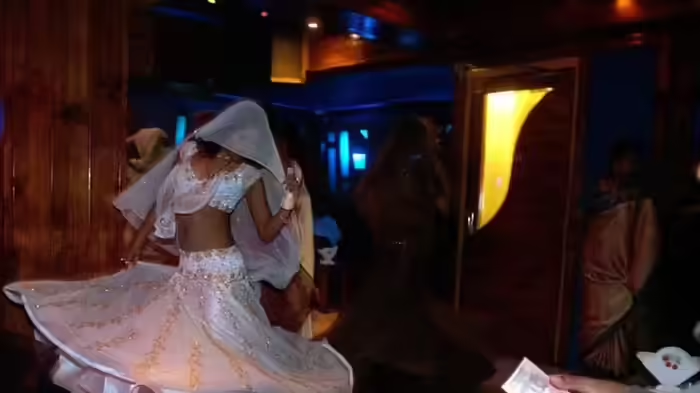
In a significant ruling that redefines the limits of criminal liability in dance bar cases, the Bombay High Court has set aside charges against a Mumbai resident who was arrested during a police raid at a bar in May 2024. The court held that merely being present at a bar where dancers are performing does not make a person a criminal.
Court: Mere Presence in Bar Does Not Imply Illegality
Justice N.J. Jamadar of the Bombay High Court quashed the chargesheet filed against a Chembur resident who was among several people arrested during a raid at Surabhi Palace Bar and Restaurant on the night of 4–5 May 2024.
The police had claimed that women dancers were performing obscene dances at the venue.
However, the court noted that the accused was only present at the bar and no material indicated that he had encouraged, abetted, or participated in any illegal act.
Police Had Booked Him Under IPC and Bar Dance Act
Based on a tip-off, the police had detained 11 individuals, including customers, bar management, orchestra staff, and dancers.
The customer in question was charged under:
- IPC Section 188 (disobedience of public order)
- Several provisions of the Maharashtra Prohibition of Obscene Dance in Hotels, Restaurants and Bar Rooms and Protection of Dignity of Women (Working Therein) Act, 2016
Police alleged that the man had “encouraged the dancers,” thereby promoting unlawful activities.
Defence: Sitting in a Bar Is Not a Crime
Challenging the charges, the accused argued before the High Court that the allegations were baseless. His lawyer, Sunny A. Waskar, contended that even if the police version was accepted as true, there was nothing to prove he violated any order or aided any illegal activity.
“Merely sitting inside a bar where dance performances are taking place does not constitute an offence,” the counsel submitted.
Prosecution’s Stand Rejected
Additional Public Prosecutor P.P. Malshé insisted that the FIR suggested the accused encouraged the dancers and therefore should not be discharged at this stage.
But the court found this claim vague and unsupported.
Justice Jamadar observed:
- No specific act of provocation was attributed to the accused
- No evidence showed conspiracy or intentional assistance
- The panchanama only recorded his presence at the bar, nothing more
The judge reiterated that mere presence in a place where dancing occurs cannot amount to disobedience of lawful orders or abetment.
Prosecution Called “Abuse of Process”
Holding that no prima facie case existed under the IPC or the state’s Obscene Dance Act, the High Court said continuing the prosecution would be an abuse of judicial process.
The chargesheet was accordingly quashed, drawing a clear distinction between actual participation in a crime and mere presence at the scene.
Discover more from SD NEWS agency
Subscribe to get the latest posts sent to your email.
